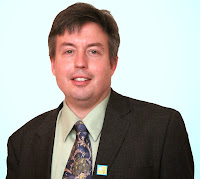 By Peter Criscione - Brampton Guardian - August 27, 2010
By Peter Criscione - Brampton Guardian - August 27, 2010The Euthanasia Prevention Coalition (EPC), has launched a letter-writing campaign in a bid to stop what it says is the unjust treatment of a disabled patient at Brampton Civic Hospital.
EPC is urging residents to file letters en masse after the Consent and Capacity Board, an independent provincial tribunal whose mandate, in part, is to determine a person’s capacity to consent to or refuse medical treatment, gave a public guardian power of attorney over Kulendran (Joshua) Mayandy, a 48-year-old pastor who acquired a cognitive disability after suffering a heart attack in May.
Doctors have determined there is no hope of recovery and suggested all life-sustaining treatment be removed.
But without family members or appointed legal guardian in Canada, the Consent and Capacity Board placed the fate of the Sri Lankan native, a Pentecostal pastor at Humberlea Worship Centre in Etobicoke, in the hands of a Substitute Decision Maker (SDM).
This SDM, in turn, agreed with authorities that no special efforts should be made to prolong Mayandy’s life and on Aug. 17 gave doctors at Brampton the go-ahead to withdraw intravenous hydration and nutrition to speed up his death.
However, EPC members have condemned the decision on the basis that it contradicts Mayandy’s Christian beliefs.
Christians are generally opposed to the idea of interfering with the natural process of death.
“Other than the fact that Joshua is cognitively disabled, he is otherwise healthy and could possibly live many years in this condition,” states Alex Schadenberg, executive director of EPC-Canada. “This is not a case when hydration and nutrition need to be withdrawn because he is actually dying and nearing death, but rather the decision appears to have been made to intentionally cause his death by withdrawing IV hydration and nutrition because he is unlikely to recover from his disability.”
“Society cannot condone intentionally dehydrating a person to death because of their disability or the potential cost of long-term care,” he said.
Hospital officials have refrained from offering up specific details on the matter, stating patient confidentially limits them on what they can disclose publicly.
However, William Osler Health System, which runs Brampton Civic Hospital stressed everyone “involved in the patient’s care is in agreement with his treatment plan.”
“The treatment plan being followed for him has been determined to be medically in the best interests of Pastor Mayandy,” reads a statement prepared by William Osler on the matter. “It was developed according to Ontario law and with the input and oversight of the patient’s Substitute Decision Maker and their lawyer, as well as the patient’s independent lawyer. The course of care is clearly described in an Order of the Ontario government’s Consent and Capacity Board.”
Mayandy’s family, who live in Sri Lanka, and his supporters here, reject that notion, Schadenberg said. “The fact that Joshua did not write down his personal wishes or assign a person to make legal and health care decisions on his behalf in these circumstances, does not negate the fact based on his religious convictions it is unlikely that he would have agreed to death by dehydration,” writes Schadenberg in a blog post at http://alexschadenberg.blogspot.com.
The EPC says Mayandy, who has been living with a Brampton family for the last 10 years, was admitted to Brampton Civic after collapsing in front of the emergency department on May 29.
He was revived, but sustained a significant brain injury and fell into a coma.
He was placed in the intensive care unit (ICU) and remained there until regaining the ability to breathe on his own, at which time he was transferred to the respiratory ward— where he still remains, according to EPC.
The group says Mayandy emerged from the coma and regained some ability to communicate.
“He (Mayandy) has the ability to recognize his closest friends and respond with one-word answers and sometimes with multi-word responses. He is able to move his body and appears to be physiologically stable,” Schadenberg states.
However, if Mayandy were physiologically stable, the order issued by the consent board states the attending physician must feed and hydrate Mayandy in the event he makes "a capable request for food or water."
Schadenberg told to The Guardian that EPC has consulted lawyers and is considering legal action. In the meantime, the EPC is encouraging people to send in letters to William Osler to express disapproval.
Link to the article: http://www.bramptonguardian.com/news/article/866362
























